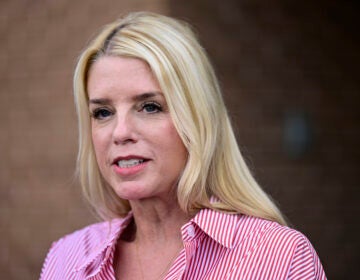Sen. Coons calls appointment of Delaware’s acting U.S. attorney ‘probably illegal’
Julianne Murray was state GOP chair when the Trump administration installed her without a presidential nomination that requires Senate approval.
Listen 1:49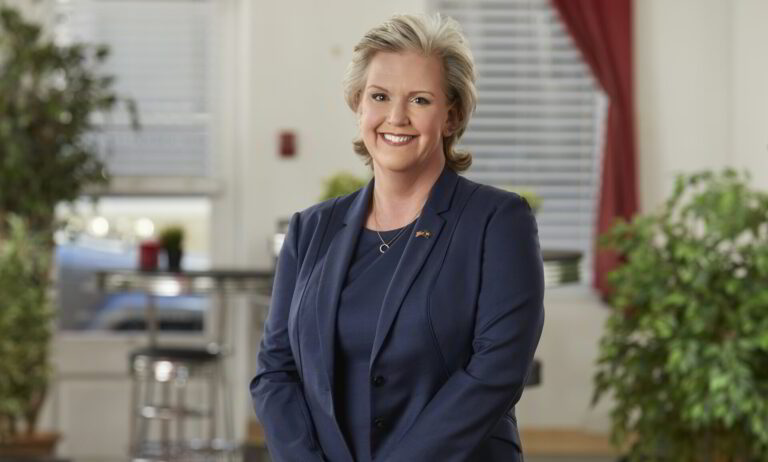
Colm F. Connolly, Delaware's chief federal judge, wrote that his court didn't put Julianne Murray, above, in the post after her 120-day interim appointment ended. (U.S. District Court/Courtesy of Julianne Murray)
What are journalists missing from the state of Delaware? What would you most like WHYY News to cover? Let us know.
Is Delaware’s “acting” U.S. attorney, a loyalist of President Donald Trump who chaired the state Republican Party immediately before her appointment, serving in the post illegally?
That’s a question now being asked about Julianne Murray as federal courts around the country have ruled that five other U.S. attorneys were unlawfully put in their posts on an “interim” or “acting” basis by U.S. Attorney General Pam Bondi.
Bondi installed Murray as Delaware’s “interim” U.S. attorney in July. The 120-day limit for interim appointments ended this month, when Bondi changed Murray’s status as Delaware’s chief federal law enforcement officer to “acting.”
But U.S. Sen. Chris Coons of Delaware, a member of the Senate Judiciary Committee that vets candidates for U.S. attorney posts, told WHYY News he thinks the steps Bondi took to keep Murray in the post are “probably illegal.”
The nation’s 93 U.S. attorneys are critical law enforcement administrators who guide prosecutions in their jurisdictions for a wide range of federal cases, including gang violence, narcotics trafficking, firearms crimes, kidnapping, bank fraud, money laundering and tax evasion.
Under the U.S. Constitution, federal law and longstanding practice, U.S. attorneys are nominated by the president and must be confirmed by the U.S. Senate.
Bondi, however, has chosen a nontraditional route with some appointments, only to have her end-around maneuvers declared unlawful in New Jersey, Virginia, Nevada, New Mexico and California.
The latest reversal came Monday. In a dramatic decision, a judge ruled that Trump’s former personal lawyer, Lindsey Halligan — an insurance lawyer with no prosecutorial experience before Bondi made her interim U.S. attorney for the Eastern District of Virginia in September — was illegally installed. Bondi immediately pledged to appeal.
Perhaps more importantly, the judge’s order that Halligan’s appointment was unlawful also dismissed two high-profile cases — the criminal indictments against former FBI director James Comey and New York Attorney General Letitia James. Trump had publicly called for their prosecutions and Halligan, within days of taking the job, obtained grand jury indictments against them.
Meanwhile, the status of Alina Habba, another of Trump’s former personal attorneys who Bondi put in the New Jersey post this year, only to have her actions declared unlawful in August, is also in limbo. The case is now before the 3rd U.S. Circuit of Appeals, whose decisions govern New Jersey and Delaware.
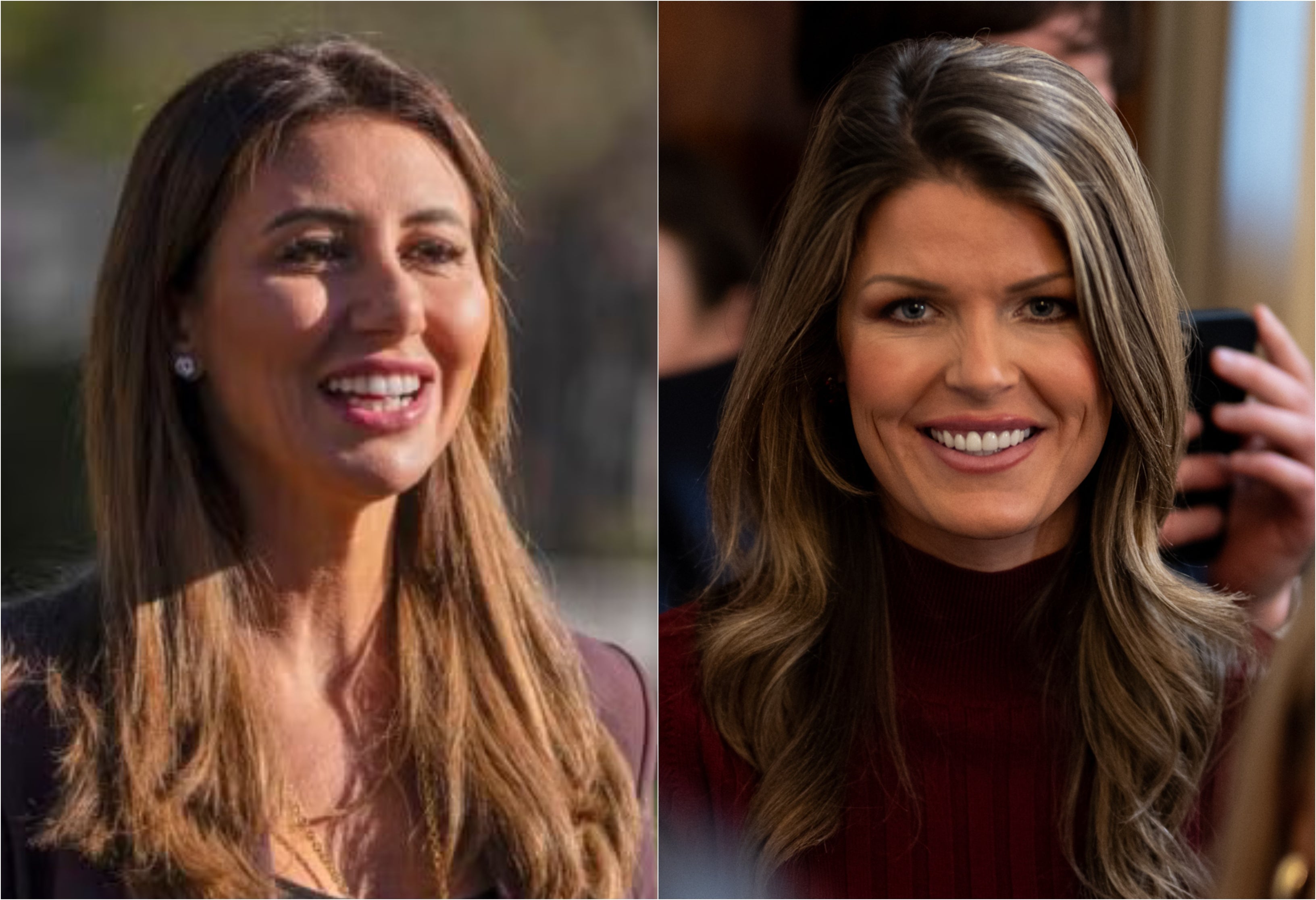
While no formal legal challenge has been brought against Murray’s appointment, the details surrounding her installation have similarities to the others that have been contested and ruled invalid.
Murray and the others have not been nominated by Trump and confirmed by the Senate.
And like Habba in New Jersey, the judges in the U.S. District Court for Delaware decided not to reappoint Murray to the post after her initial 120-day “interim” status ended Nov. 11.
Federal law says that after 120 days, a district’s judges may put someone in the post until the vacancy is formally filled.
In New Jersey, the judges named Habba’s top assistant to the post, but Bondi promptly fired her. Then, Bondi took several legal steps to make Habba the “acting” U.S. Attorney, using another federal law that lets someone fill a post for 210 days.
Even though a judge ruled Habba’s appointment unlawful in August, she remains in the post while the Trump administration appeals.
Judges ‘would only appoint a person the court deems qualified’
Since Trump has not formally nominated Murray or anyone else to the Delaware post, the state’s chief federal judge, Colm F. Connolly, publicly sought applications for the post in September.
That’s when Connolly issued an order that said “the court would only appoint a person the court deems qualified for the position.”
The judges ultimately decided that Murray, who had never been a prosecutor before joining the U.S. Attorney’s Office in July, was not qualified.
When Connolly formalized the order on Nov. 6, he wrote that the “the Court declines to exercise” its legal authority to put someone in the post.
Connolly himself is a former U.S. attorney for Delaware who was appointed by President George W. Bush and confirmed by the Senate. He held the post from 2001 to 2009 after serving several years as an assistant U.S. attorney and then a partner in a Wilmington law firm that specializes in corporate matters.
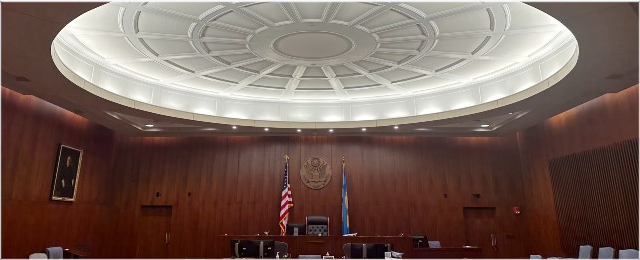
Trump appointed fellow Republican Connolly to the federal judiciary in 2017 during his first presidential term and he was again confirmed by the Senate. Connolly became chief judge in 2021.
The stand taken by Connolly and his fellow federal judges in Delaware over Murray’s appointment instantly put the chief judge in the crosshairs of the Trump administration, however.
After Connolly’s September order seeking applicants for the job, U.S. Deputy Attorney General Todd Blanche, also a former Trump personal attorney, posted the two-page document on the social media platform X and directed strident words at Connolly.
I would strongly urge the Chief Judge to revisit our Constitution, particularly Articles II and III. The responsibilities laid out there make clear that appointments of United States Attorneys are first and foremost the duty of the President, not the courts. pic.twitter.com/psaiCg5giQ
— Todd Blanche (@DAGToddBlanche) September 17, 2025
“I would strongly urge the Chief Judge to revisit our Constitution, particularly Articles II and III,” Blanche wrote. “The responsibilities laid out there make clear that appointments of United States Attorneys are first and foremost the duty of the President, not the courts,” Blanche wrote.
Connolly would not agree to an interview with WHYY News about the Delaware court’s rejection of Murray or the chidings of Bondi’s top deputy.
After Connolly issued his letter, however, Bondi decided to name Murray as the “acting” U.S. attorney, according to the Department of Justice’s website.
Bondi’s office would not comment on her actions regarding Murray, or share any documentation detailing her appointments.
Murray, who previously ran unsuccessfully as the GOP’s nominee for Delaware attorney general and governor, also had no comment.
In Habba’s case, Bondi and lawyers for her department have argued that the “acting” designation under the Federal Vacancies Reform Act of 1998 entitled her to another 210 days of service in the New Jersey post after her 120-day interim stint ended.
A federal judge rejected that argument and the federal appeals court in Philadelphia is now weighing Habba’s fate.
The status of Sigal Chattah in Nevada, whose installation as that state’s acting U.S. attorney after her interim period ended was declared illegal in September, is also before a federal appeals court.
Sen. Coons calls latest Murray appointment ‘probably illegal’
The uncertainty surrounding the leadership of the Delaware federal prosecutors’ office concerns Coons, a Democrat and the state’s senior U.S. senator.
“The maneuver by the Department of Justice and the White House of switching Murray from interim U.S. attorney to quote, unquote ‘acting US attorney’ to buy her another 210 days of service is frankly meant to circumvent both the Senate blue slip process and home state senators and is probably illegal,” Coons told WHYY News this week. “That exact same move has been found unlawful in both New Jersey and Nevada.”
The “blue slip” Coons is referring to is an informal but long-established mechanism that permits each state’s two U.S. senators to weigh in on nominations for U.S. attorney in their state.
Trump has not nominated Murray to the post, but Coons said he and fellow Delaware Sen. Lisa Blunt Rochester interviewed her and a handful of prospective candidates for the post to gauge their qualifications and competence. Those interviews were done separately from the process that Connolly and the Delaware federal judges used to review candidates.
“I’m not going to get into the details of the interview, but it was constructive, respectful, appropriate,” Coons said.
“I recognize she’s making efforts to be a constructive part of the Delaware law enforcement community, working with Attorney General [Kathy] Jennings and local law enforcement, but for reasons both that have to do with the conduct of the Department of Justice under President Trump and what’s happened in several other states, I declined to return a blue slip for Ms. Murray.”
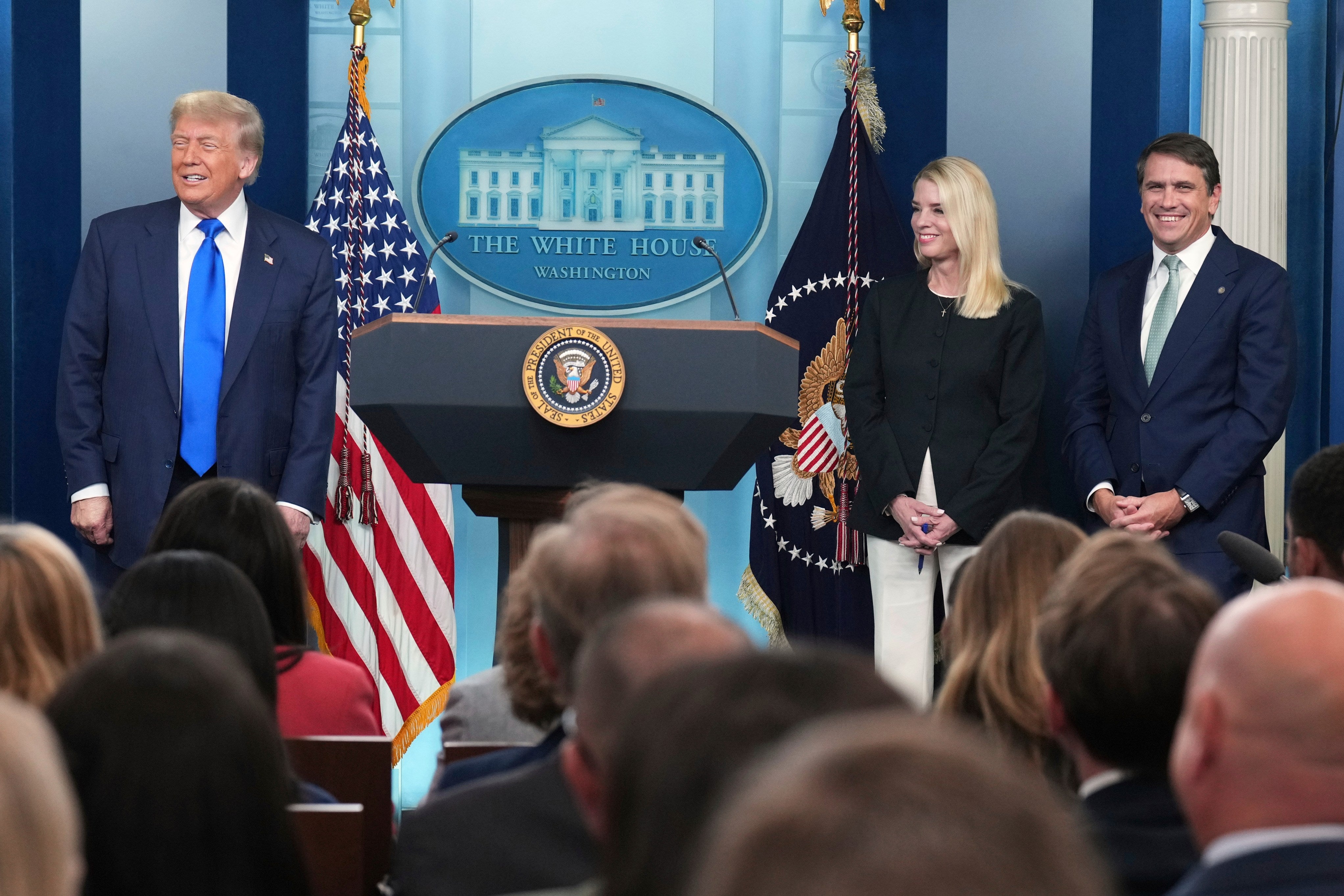
Coons also criticized Bondi for doing Trump’s bidding from an office that has historically kept the White House at arm’s length in pursuing prosecutions.
“It’s been alarming that the attorney general has publicly acted in response to direct pressure from the president to initiate investigations and actions against individuals identified as the political enemies of the president,” Coons said. “This is a gravely concerning moment in terms of the lack of independence of the Department of Justice.”
As it stands now, unless something changes, Murray could theoretically remain in the job until June, when 210 days is up.
But then Delaware would still need someone to run its U.S. Attorney’s Office.
Coons said he’s hopeful that Trump nominates a viable candidate who can pass Senate muster.
“I am committed to working with the White House to find a candidate that I can support and Senator Blunt Rochester can support and that the White House can sign off on,” Coons said.
“But regrettably, Julianne Murray is not that candidate.”

Get daily updates from WHYY News!
WHYY is your source for fact-based, in-depth journalism and information. As a nonprofit organization, we rely on financial support from readers like you. Please give today.




